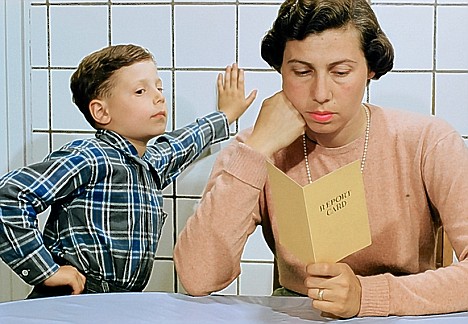Aside from how teachers would change the way they teach, handing out and receiving report cards demonstrates an interesting perspective into the psychology of the student/teacher relationship. Many boards in Ontario right now are going ahead with drawbacks over contract negotiations and the most affecting proposition is the removal of report cards at the end of the year. So, teachers will not send home subject comments pertaining to “common core” subject areas. Teachers will simply hand over a spreadsheet of grades to principals while schools will send home a letter to each child that states whether they have passed or failed the grade. A breath of fresh air for teachers in my opinion but it comes with the foreshadowing of potential warfare that could include teachers taking further steps of “job action” that will ultimately hinder student growth and put a stop to the financial security of educators. With all of these swirling rumors and impending directives, students and teachers are equally affected.
This move highlights the detrimental aspects of the report card: its impetus to provide provisional self-esteem to children on the basis of a letter grade. Sure many students feel short-changed because they will not know how they did in a subject, but why do students need the authoritative approval of a teacher to determine whether or not they gave their best effort in a subject, or rather how well they did in a subject? You could make an argument about how important grades are to high-schoolers; but in elementary school, does a kid really need to see an A, B, or C on a report card to figure out how they ought to position themselves in relation to others their age? More importantly, do the positive aspects of promoting achievement based on a ranking system (that is rather subjective) outweigh the damage that such a system has the potential to create? What does the kid who consistently gets “Cs” in subjects come to believe about himself by the time he reaches the ripe old age of 12? Report cards are important for offering an accurate assessment of a child’s academic work in a subject, but they do little to promote optimism and a growth mindset for our younger school children who are “on the fringe” academically.
And what about the teachers? One teacher I spoke with regarding the move to not writing report cards this year lamented that, “it’s not fair that the kids who didn’t work hard get the same exact ‘recognition’ as the kids who tried hard all year”. He was clearly upset at the missed opportunity to one last time punish students who did not fit his idea of excellence. While I feel that there should be tangible “reflections” of student achievement (or lack there of) , I question a teacher’s motivation when a primary reason for giving out grades is to “teach students a final lesson”.
Students who work hard in school deserve recognition and validation. But we are so absorbed in traditional models of pedagogy that we seldom look to the benefits of doing things differently.
The current contract situation in school boards across Ontario is unfortunate for students and teachers alike. But the glimmer of optimism it provides rests in the opportunity we have to explore how politics of accountability and traditional forms of professionalism impact teaching practice. Teachers don’t have to write a report card! The archetypal moment in the teacher’s year has been erased – there is absolutely no way this will not impact every single teacher and student affected. The question is how? And it’s a question worth careful consideration.
[share title=”Share this Post” facebook=”true” twitter=”true” google_plus=”true”]


Report Cards Part II